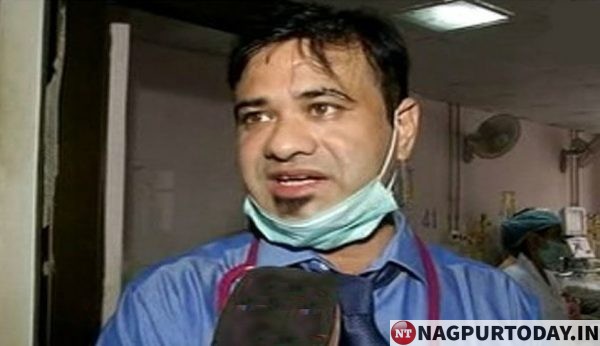Allahabad: The Allahabad High Court on Tuesday said that Dr. Kafeel Khan’s speech at the Aligarh Muslim University on December 13, 2019, amidst the anti-CAA protests, that led to his arrest and subsequent detention under the stringent provisions of the National Security Act, “does not disclose any effort to promote hatred or violence.”
The Division Bench comprising Chief Justice Govind Mathur and Justice Saumitra Dayal Singh held that prima facie, the speech is not such that a reasonable man could have arrive at a conclusion as the inference drawn by the District Magistrate, Aligarh, who passed the detention order against Dr. Khan in February this year.
Accordingly, it has revoked the NSA charges against Dr. Khan; the order of detention dated 13th February, 2020 passed by District Magistrate, Aligarh under the NSA Act and confirmed by the State of Uttar Pradesh has been set aside. The extension of the period of detention of detenue Dr. Kafeel Khan is also declared illegal. Also Read – Object Of NLSIU Domicile Reservation To Ensure That A Portion Of Students Stay Back To Serve The State : Karnataka AG Tells HC
Dr. Khan was arrested from Mumbai in January this year, for allegedly giving a provocative speech at the Aligarh Muslim University on December 13, 2019, amidst the anti-CAA protests. Notably, Khan had been granted bail by the court of CJM, Aligarh on February 10. However, he has been languishing in jail under the NSA Act, which was slapped on him by the Aligarh District Magistrate on February 15.
In this backdrop, the Court observed that when the alleged provocative speech was delivered in December 2019, the District Administration, Aligarh did not find the speech of Dr. Kafeel Khan sufficient for preventive detention. However, only when the CJM allowed his bail application on February 10, the District Magistrate, Aligarh initiated the process for detaining Dr. Kafeel Khan under the National Security Act, 1980. The Bench clarified that the delay in passing of detention orders or in recording subjective satisfaction to preventively detain a person may not be a subject matter of a hard and fast rule. Nevertheless, it observed, the record must itself indicate that there existed a “continuing casual link” between the satisfaction claimed to have been recorded and the offending act. In the present case, the Court noted,
It added that no recommendation, even at the time of Dr. Khan’s bail hearing was made for invoking powers under sub-Section (2) of Section 3 of the National Security Act, 1980. Hence, the Court held that the “causal link” between the Act and the detention order is missing/ completely broken. Another reason given by the Court while dropping the NSA charges against Dr. Khan was that the State authorities have failed to discharge their “bounden burden” to establish that the lecture delivered by Dr. Khan in December 2019 had such a deleterious effect on the public order in district-Aligarh as had continued to exist up to 13.02.2020, necessitating preventive detention of the detenue, on that later date.
The Court observed, “Preventive detention is an exceptional mode to curtail liberty and freedom of a person in exceptionally rare circumstances. Under Article 21 of the Constitution of India along with the right to life, the right to personal liberty is a precious fundamental right. This precious fundamental right must always be protected.” Lastly the Court observed that Dr. Khan was not supplied the grounds for his detention and thus he was deprived of the material necessary to submit a representation in accordance with clause (5) of Article 22 of the Constitution of India.
Considerably, the grounds for detention along with material were supplied to Dr. Khan in the form of a compact disk. However, neither a transcript nor any device to play the compact device were made available to him. In such circumstances the Court held, “The non-supply of transcript would have been of no consequence, if a device would have been supplied to the detenue to play the compact disk. It is the position admitted that no such device was made available to the detenue. In absence of such device the supply of compact disk is absolutely non consequential. It virtually amounts non-supply of the material necessary to submit a representation in accordance with clause (5) of Article 22 of the Constitution of India. Such non-supply of material violates a precious fundamental right of a detenue enshrined under Article 22 of the Constitution.
On this count also the detention of Dr. Kafeel Khan deserves to be set aside.” It added, “The detention of Dr. Kafeel Khan has also been extended twice. It is stated by learned Additional Advocate General that the detenue even while in prison is in contact with the students of Aligarh Muslim University and is instigating to disturb public order of the city. The facts stated is not acceptable being not supported by any material. At the threshold, it would be appropriate to state that the detenue is in State custody where he can’t have any electronic device or other mechanical device to have contact anyone. The other eventuality is sending messages through the visitors, but no record of that too is available.”













